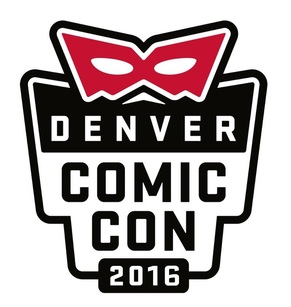Written by Joel T. Lewis The Dark Side of Fandom Sunday, June 19, 2016 1:30pm-2:20pm Allison Ching, Curtis Sullivan, Moriah Hummer, Nathan Morimitsu, Nathan Scott, Shane Gomes Nerds and geeks are by definition fanatics. We have an inexhaustible enthusiasm for characters, stories, and other worlds that defines how we interact with reality. Fandoms are our communities, our family units that share the fervor, the obsession, the genuine love we feel towards content. We don’t just passively watch Game of Thrones play out on our TV screens and we don’t just turn the pages of Goblet of Fire with a critical detachment; we live in Westeros and we know that winter is indeed coming; we feel the excitement of the Quidditch World Cup as it plays out in our imagination. The Fandom Phenomenon provides fans with a community of peers that, at its best, fosters healthy discussion, speculation, communal support, and creativity. Organizations like the 501st Legion and Aurora Rise show the power of fans contributing to community outreach, charity, and recovery from tragedy. Unfortunately, the positive impact that organizations like the 501st and Aurora Rise have on the community can be overshadowed by the Dark Side of Fandom. Whether it’s the anonymity of the online comments section or the misguided presumptions of individual fans that turns the potential good a fan community can do into the harmful reality we see all too often, a Fandom can be quite destructive. Death threats, Geek Girl shaming, and Nerd Elitism are the most extreme examples of patterns of behavior that all Fans exhibit, however innocently, at some point. It can be as simple as the tone of voice used when saying, “Actually,” when correcting a fellow fan in a discussion of Superman’s powers in the New 52 Universe, championing the book series over the television adaptation of The Shannara Chronicles, or a subtle roll of the eyes at a cosplay costume that was bought at a store. The panelists at Denver Comic Con discussed several instances of more extreme examples of the Dark Side of Fandom, specifically the debate over the legitimacy of the new Ghostbusters film and the critical backlash received by Batman v Superman: Dawn of Justice. While I agree with the points that were made about the validity of an all-female cast for Ghostbusters and Zack Snyder’s humanity, I was more curious about what it is that Fan Culture permits that leads to such extreme and damaging arguments, and what we can do to change it. Now there is nothing wrong with correcting a fellow fan in a discussion or informing a fellow fan of something that they may not have read, but too often there is an assumption within the Nerd Community that a Fan with a particular lack of knowledge or a new fan is somehow lower and lesser than older fans who meet some unwritten criteria (i.e. If you haven’t read X, you can’t have an opinion, or if you like the TV series better you don’t understand the novels and so on). This response could be said to come out of a shared history of bullying among “older nerds.” As a member of a generation where nerds were bullied and shamed by more athletic or “cool” kids in grade, middle, and high school it is not difficult for me to understand the “oppressed nerd” mentality. I do not mean to equate nerd bullying with race, gender, or LGBT injustices by using the word oppressed, (as some nerd elitists would); however, I do believe it is an appropriate word for how it felt to be bullied as a nerd. The posture of the older nerd or nerd elitist is that of, “Fans, geeks, or nerds today did not have to and do not have to suffer as a result of their interests, therefore they have not earned the right to the title of Fan, Geek, or Nerd.” This is absurd. Too often we forget that the wedgies we endured, the bullying we experienced, and the shame we were made to feel, all for the sake of something unique and creative, something that captured our imaginations, and our endurance to stay true to our passions despite such actions, paid off in the end. What we loved, what we were bruised and hurt and shamed for, now rules the marketplace. Popular Culture bends over backward to please the nerds! Our opinions and our ticket sales impact what sinks or swims at the cinema, on TV, or in print. It’s not fair to hold our having been bullied against someone discovering what we’ve loved for the very first time. When I described scenarios where there was nothing wrong with correcting or informing another member of your Fandom I used a phrase which I believe captures the spirit of my argument here: Fellow Fan. Fellow means a person in the same position, involved in the same activity, or otherwise associated with another and that’s Fandom to a T. If we can treat fans old and new with the same level of respect, without unfair criteria for inclusion in our Fandoms, if we consider all fans to be fellow fans, perhaps the Dark Side of Fandom will fade and allow the light to shine more brightly.
0 Comments
Leave a Reply. |
Archives
March 2025
|
|
© 2012-2025, Nerds That Geek LLC.
All Rights Reserved. |
uWeb Hosting by FatCow


 RSS Feed
RSS Feed